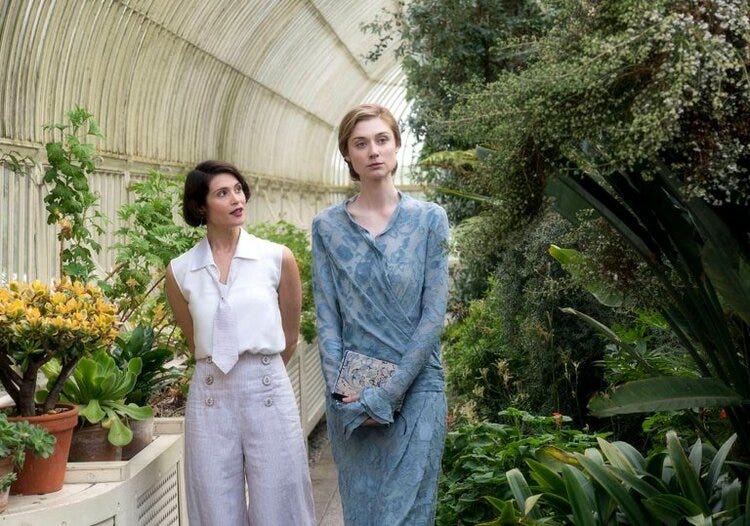vita and virginia
Film, 2019, 2.5 stars
Directed: Chanya Button
Written: Eileen Atkins (+ Virginia Woolf and Vita Sackville-West’s letters)
Damn damn damn DAMN. Oh how I wanted to love Chanya Button’s homage to the romance of Virginia Woolf and Vita Sackville-West. They are truly fascinating historical literary figures. I love Orlando, Mrs Dalloway and A Room of One’s Own. Despite my low rating though, I do want you to watch it if you share these loves, because any chance to hear Virginia Woolf’s prose is a great thing in itself.
The letters shared between these two women are romantic, sublime, and are recognised as literature in their own right. Only they were letters, crafted communications from the heart, and never meant to be dialog spoken aloud. Therein lies what I believe is the crux of the script issues with this rather dour film, but it wasn’t the only issue.
The phrase “show don’t tell” is a cliche, but for a very good reason. Films that tell us how the characters feel quickly become tedious. Vita (the talented Gemma Arterton) is a fleeting creature. She appears in people’s lives dramatically and then is gone. I didn’t need her rather lonely speech at the end telling us that she is incapable of relationships, we know by the very disdain she has for the people who love her. Virginia (the enigmatic Elizabeth Debicki) is a fragile soul who feels too deeply. Her imagination and mental illness lead her into delusions, like ravens attacking her in the yard and vines growing up the walls.
The clash of these particular literary folklore titans should have been amazing… instead it was frustrating, distant, preachy, and cold. The women may as well have been acting in different films for all the connection they actually make with each other. Indeed, they spend a great deal more time telling us about their attraction than feeling it. It was a fine line to walk given that yes, Vita was supposed to be someone who could be obsessed but never truly love, but she was also someone who loved the chase, and we needed to be thrilled by that, not left cold by her attempts to woo the reticent Virginia.
This wasn’t a failure by the actresses, they’re acting their socks off. It’s a failure of script, of direction, even editing. We leave thinking “that was beautifully shot”, rather than “that was beautifully felt”. What I wanted was close ups into Virginia’s eyes as Vita moves like a caged tiger about the room, unable to express her feelings, trapped inside emotionally, but also unable to keep her eyes off this force of nature.
Instead we got beautiful longshots of gardens, of vast Egypt as Vita’s train moves through it, of London streetscapes and country manors filled with flowers. I wanted the innermost details of their souls, and I felt as though the director was actively trying to distract me.
Most of all, I felt alienated by the way they spoke to one another, using the well-known words from their intense letters as dialog, instead of keeping that to the actual letter-reading sequences. Nobody, then or now, speaks like that. There are occasions where Vita calls Virginia out of how she speaks, and is sometimes rewarded by a straight answer, but mostly it’s Virginia wandering around in a haze of her own brilliance.
Only at the end, in one final sequence filled with darkness and honesty, does the script and direction finally let up, and allow the women to show how they feel. Somehow this almost made it worse, as I could finally see the film that I had wanted all along, and now only at the end - once the passion had died and we witnessing its aftermath - was the director allowing us to really feel what Virginia felt, and what Vita was trying to feel but could not because her selfish nature could never allow it.
This could have been more like The Hours, or Possession, both wonderful examples of period romance and literary obsession done so well. Instead it was fragmented and distant, and honestly by the end I could not have cared less about what happened to any of them.




